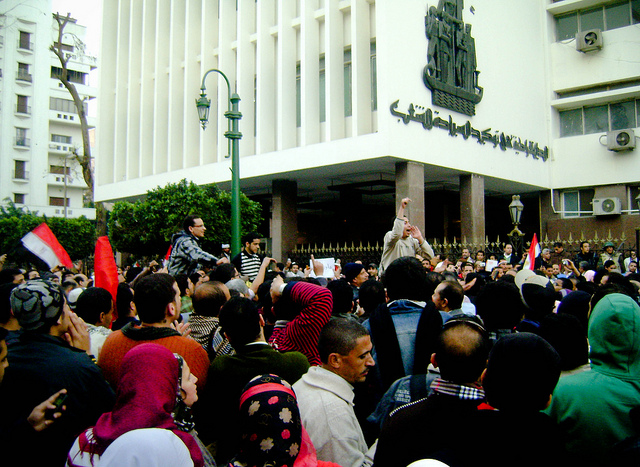
Leaders in the Middle East and North Africa appear to be increasingly sensitive to criticism by their citizens and more inclined to pursue legal action against critics. Numerous cases have been brought against critics who employ social media, but traditional media is also under pressure.
While not attempting to be comprehensive, the table below summarizes some of the new and old laws that deal with defamation, libel and the right to criticize government in Arab countries.
Laws on Critiquing the Government in MENA
|
Country |
Law |
|
Algeria |
A new media law went into effect January 12, 2012 and has been widely criticized by journalists. It is ambiguous and criminalizes defamation. |
|
Bahrain |
An amendment to article 214 of the penal code which would impose a maximum of five years in prison for “offending the king, the national anthem or emblem” is currently pending and supported by the government. Current libel laws allow for fines up to $26,500 and a minimum of 6 months imprisonment for criticism of the king. |
|
Egypt |
Mubarak era laws that criminalize critique of public officials are still in place. Direct criticism of the Supreme Council of the Armed Forces was made illegal during their time in power. |
|
Iraq |
The 1968 publication law allows for 7 years imprisonment for publicly insulting the government. Its constitutionality was upheld in 2012. |
|
Jordan |
Criticism of the king and other similar offenses merits up to three years in prison. |
|
Kuwait |
Critics of the emir face up to five years in prison. A law currently under consideration would also call for a fine of $1 million and explicitly include criticism made via the internet. |
|
Lebanon |
Libel and defamation are both criminalized. While critique of the government is allowed, critique of the president is not. |
|
Libya |
The Gadaffi-era penal code is still in place, which calls for imprisonment for criticism of the government. |
|
Morocco |
Article 46 of the constitution states that “The person of the king is inviolable and respect is owed to him.” Article 52 of the Moroccan Press Law allows for up to one year in jail and fines of up to $11,955 for defamation. |
|
Oman |
Article 126 of Oman’s penal code criminalizes “defaming the Sultan.” |
|
Qatar |
Article 136 of the penal code requires a life sentence for anyone “who instigates by public means to overthrow the regime of the country.” |
|
Saudi Arabia |
Vague laws allow the government leeway in how it responds to critics. Defamation is a crime and a proposed anti-terrorism law would include 10 years imprisonment for those “questioning the integrity of the king or crown prince.” |
|
Tunisia |
Defamation laws allows for imprisonment if “found guilty of wrongly accusing an official of wrongdoing.” |
|
UAE |
Article 176 of the penal code prohibits criticism of the country’s leaders. In November 2012 a law was passed that imposes jail time for those who criticize the UAE’s leaders on the web. |
|
Yemen |
The 1990 Press and Publication Law outlaws criticism of the “person of the head of state.” |
Sources: State Department Human Rights Report, Human Rights Watch and Freedom House
Photo: Maggie Osama
Image: Protest%20at%20Egypt%20Parliament.jpg
